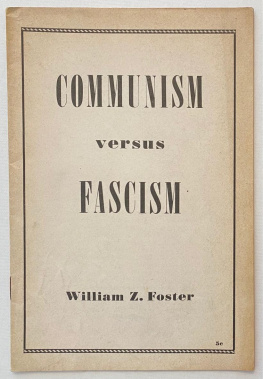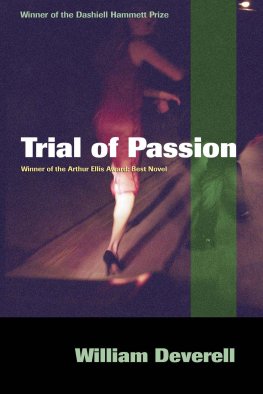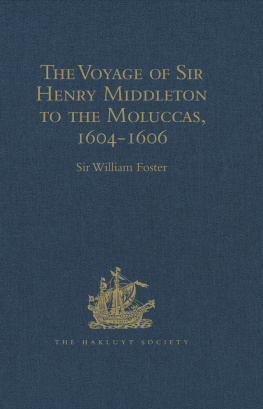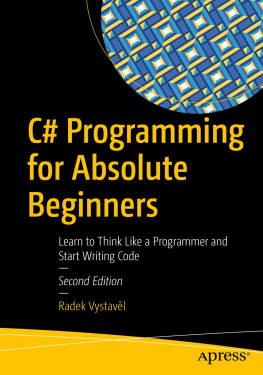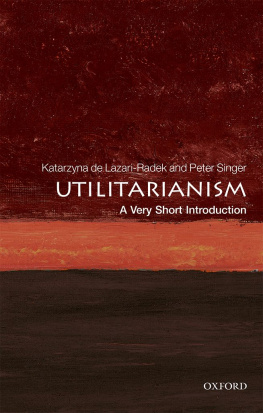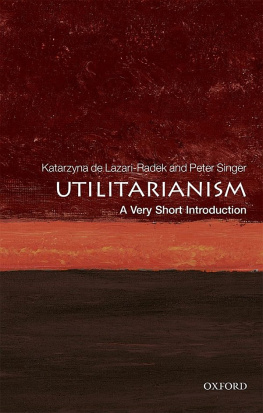William Z. Foster - Questions & Answers on the Piatakov-Radek Trial
Here you can read online William Z. Foster - Questions & Answers on the Piatakov-Radek Trial full text of the book (entire story) in english for free. Download pdf and epub, get meaning, cover and reviews about this ebook. City: New York City, year: 1937, publisher: Workers Library Publishers, genre: History. Description of the work, (preface) as well as reviews are available. Best literature library LitArk.com created for fans of good reading and offers a wide selection of genres:
Romance novel
Science fiction
Adventure
Detective
Science
History
Home and family
Prose
Art
Politics
Computer
Non-fiction
Religion
Business
Children
Humor
Choose a favorite category and find really read worthwhile books. Enjoy immersion in the world of imagination, feel the emotions of the characters or learn something new for yourself, make an fascinating discovery.

- Book:Questions & Answers on the Piatakov-Radek Trial
- Author:
- Publisher:Workers Library Publishers
- Genre:
- Year:1937
- City:New York City
- Rating:3 / 5
- Favourites:Add to favourites
- Your mark:
- 60
- 1
- 2
- 3
- 4
- 5
Questions & Answers on the Piatakov-Radek Trial: summary, description and annotation
We offer to read an annotation, description, summary or preface (depends on what the author of the book "Questions & Answers on the Piatakov-Radek Trial" wrote himself). If you haven't found the necessary information about the book — write in the comments, we will try to find it.
Questions & Answers on the Piatakov-Radek Trial — read online for free the complete book (whole text) full work
Below is the text of the book, divided by pages. System saving the place of the last page read, allows you to conveniently read the book "Questions & Answers on the Piatakov-Radek Trial" online for free, without having to search again every time where you left off. Put a bookmark, and you can go to the page where you finished reading at any time.
Font size:
Interval:
Bookmark:
In the last week of January, 1937, seventeen Trotskyites were tried in Moscow, U.S.S.R., including G. Piatakov, Assistant Commissar of Heavy Industry; K. Radek, leading editorial writer of the Central Communist journal, Pravda; G. Sokolnikov, former Ambassador to Great Britain; G. Serebriakov, Assistant Commissar of Communications and several other prominent ex-government officials. The defendants were accused of treason, sabotage, assassination and counterrevolution.
At the trial State Prosecutor A. Y. Vyshinsky presented an indictment outlining the whole conspiracy which, led and directed by Leon Trotsky from his European exile, was aimed to overthrow the Soviet government by violence with the aimed assistance of the fascists of Germany and Japan. It was a most dastardly and astounding counter-revolutionary plot. But the defendants, one and all, admitted its authenticity; some penitently, others boastfully and a few defiantly. The combined voluminous testimony of the accused fully sustained the terrible indictment in every particular.
One defendant after another told of his part in the conspiracy and furnished details of Trotsky's plot to smash the Soviet government with the help of the fascists. The accused stated that the fascists, as their reward for overthrowing the Stalin regime and placing Trotsky in power, were to be given rich territorial concessions. Germany was to receive the great Ukraine province and Japan was to be ceded Sakhalin and the Maritime Provinces in the Far East. These two countries were also to get valuable trade concessions in the Soviet Union. Radek and Piatakov both testified that Trotsky had made a bargain with these capitalist governments accordingly. Piatakov averred that Trotsky's agreement with the leaders of the German National Socialist Party (Hitler fascists) contained the following points:
- To guarantee a generally favorable attitude towards the German government and necessary collaboration with it on most important questions of an international character;
- To agree to territorial concessions;
- To admit German industrialists to concessions (or in some other form) for the exploitation of such enterprises in the U.S.S.R. as constitute necessary economic compliments to Germany economy. This concerned iron ore, manganese, oil, gold, timber, etc.;
- To create favorable conditions for the activity of German private enterprise;
- In time of war to develop active diversion of plants in the war industry and at the front. This diversionist work [sabotageW.Z.F.] was to be carried on under Trotsky's instructions in agreement with the German general staff.
Trotsky understood, of course, that such an agreement with the fascists, if carried out successfully, would involve the restoration of capitalism in the U.S.S.R. and he was prepared to accept that also. Radek testified during his examination that Trotsky had sent him a message as follows:
"It must be understood that without a certain leveling of the social structure of the U.S.S.R., to that of the capitalist states, this bloc [Trotsky's groupW.Z.F.) will not be able to maintain itself in power and to preserve peace."
In the furtherance of this monstrous plan to dismember the U.S.S.R. and to surrender the hard-won victories of the October Revolution, the Trotskyites prosecuted a program of terrorism, espionage and sabotage. The testimony of the defendants themselves showed that the assassination of Sergei M. Kirov, a high Party official, December 1, 1934, for whom the sixteen Zinoviev-Kamenev leaders of the Trotskyite group were convicted and executed last August, was carried out in the course of the widespread terrorist conspiracy, and that steps were also under way to assassinate Stalin, Molotov, Voroshilov and other government leaders. The defendant Piatakov stated that Trotsky had declared to him, "We must literally stick at nothing to overthrow Stalin", and Radek testified that Trotsky had demanded the "organization of a small group of trusted people to carry out terrorist attempts on the lives of leaden of the Communist Party of the Soviet Union, and primarily against Stalin".
The whole Trotskyite counter-revolutionary conspiracy was based upon the overthrow of the Soviet government by fascist troops and Trotsky assassins. They together worked to lay the basis for a military defeat of the U.S.S.R., and a basic part of the terrible scheme was to paralyze the Russian industries, especially those most important in war. To do this dastardly industrial wrecking work, many of the Trotskyite leaders were situated very strategically, occupying prominent management posts in industry. They confessed at the trial that they had caused a large number of railroad wrecks, coal mine explosions, etc., in which many workers had been killed. How close this sabotage was connected with the fascist war plans was indicated by the defendant Kniazev, a former high railroad official, who testified:
"In this matter instructions of the Japanese intelligence service completely coincided with the instructions which I had received somewhat previously from the Trotskyite organizations."
Another shameful aspect of the Trotskyite plot, one which also flowed logically from the entire counter-revolutionary scheme, was the fact that several of the Trotskyite leaders turned themselves into actual spies for the fascists. Using their key positions in industry and the government, they furnished valuable military secrets to the Japanese and German governments, and for this contemptible work, as some of them testified in court, they received money from the fascist butchers.
In view of the damning evidence presented against the accused Trotskyites, as well as their own open confessions, it was clear that the defendants were carrying on a criminal counter-revolutionary conspiracy which, if successful, would have no other result than to crush socialism in the U.S.S.R. and to enthrone fascism throughout Europe. There could be no other outcome of the trial than a verdict of guilty. All sixteen were convicted. Radek, Sokolnikov, Stroilov and Arnold, because they had not actually committed wrecking activities that cost human life, were let off with sentences of from eight to ten years. The rest were shot.
The condemnation of the Trotskyite criminals was supported by huge demonstrations of workers and farmers all over the Soviet Union, who had followed by radio every word spoken by the judges, witnesses and accused. From long and bitter experience in twenty years of revolutionary struggle, these toiling masses understood quite well what had happened: another great capitalist attack upon the socialist revolution had been defeated by the vigilance and determination of the Communist Party and its leadership.
The Piatakov-Radek trial, together with the Zinoviev-Kamenev trial, has fully exposed the counter-revolutionary character of Trotsky and his supporters. It has shown them up definitely to be enemies of the Soviet Union and the world revolution, agents of Hitler, abettors of the fascist war-makers. It has exposed Trotsky as the Benedict Arnold of the Russian revolution, the Judas Iscariot of the working class. It has dealt a mortal blow to Trotsky's following, such as it is, everywhere.
But the capitalist reaction promptly rallies to Trotsky's defense. Ever since the birth of the Soviet Union twenty years ago the capitalists of the world have utilized every possible weapon to defeat the new socialist republic. They sent their troops to overthrow it, blockaded and starved it, isolated it politically, poured out oceans of lying propaganda against it. The more the U.S.S.R. succeeds, the more bitterly they hate and fear it. These inveterate enemies, quick to perceive the advantage to them of Trotsky's ceaseless lies against the Soviet Union, naturally do not want to lose this valuable tool. So they rush to save Trotsky and to use the trial and the whole situation to weaken their mortal foes: the Soviet Union, the Communist International, the People's Front movement in the various countries.
Font size:
Interval:
Bookmark:
Similar books «Questions & Answers on the Piatakov-Radek Trial»
Look at similar books to Questions & Answers on the Piatakov-Radek Trial. We have selected literature similar in name and meaning in the hope of providing readers with more options to find new, interesting, not yet read works.
Discussion, reviews of the book Questions & Answers on the Piatakov-Radek Trial and just readers' own opinions. Leave your comments, write what you think about the work, its meaning or the main characters. Specify what exactly you liked and what you didn't like, and why you think so.

